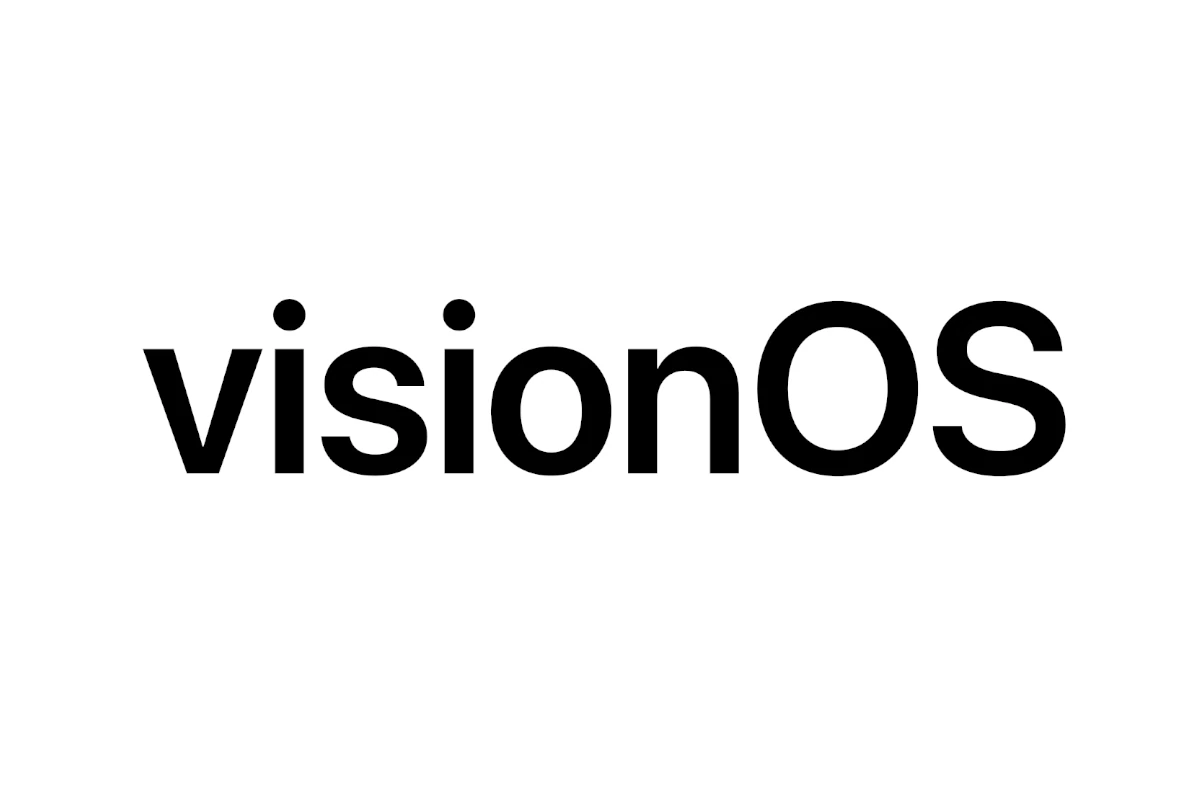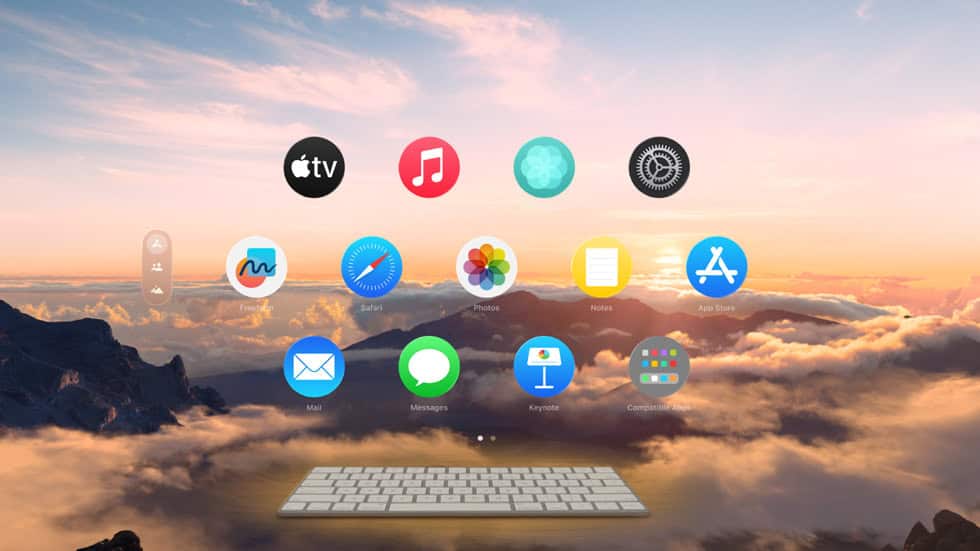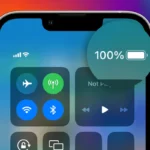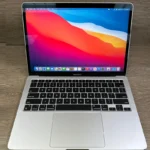If you have the latest Vision Pro update, you might be facing some issues. The visionOS 2.4.1 update brings new features but also some unexpected problems for users. Most common problems can be fixed with a simple device restart or by checking for additional system updates that might address specific bugs.
Eye tracking issues and app crashes are common complaints after updating. These problems can affect your experience with the Vision Pro headset, making apps close unexpectedly or causing the device to feel sluggish. Some users have reported that removing the device and putting it back on helps with eye alignment problems that might appear after the update.
Battery drain has also been reported by some Vision Pro owners after installing visionOS 2.4.1. This isn’t surprising as new updates often use more power while the system optimizes in the background. Some functions like the improved environmental scanning may use more resources than before.
Common visionOS 2.4.1 Issues and How To Fix Them

The visionOS 2.4.1 update primarily focuses on security fixes, but like any new release, it hasn’t been completely free of bugs. Some users have reported glitches ranging from app crashes to display lag, battery drain, and even headset unresponsiveness. Below are the most commonly reported issues and practical ways to resolve them.
1. App Crashes or Freezing After Update
Some users have noticed that certain spatial apps randomly crash or freeze after updating.
Fixes:
- Force Quit & Restart the App:
Use the App Switcher to close the app fully and reopen it. - Check for App Updates:
Developers may have issued post-update patches—check the App Store. - Reinstall the Affected App:
Long-press the app → Remove → Reinstall from the App Store.
| Problem | Quick Fix |
|---|---|
| Random Crashes | Restart app, reinstall if needed |
| Freezing UI | Reboot headset |
2. Display Lag or Jittery Motion
Lag or micro-stutters in head-tracking or spatial rendering have been reported, especially when multitasking.
Fixes:
- Reduce Background Apps:
Running too many apps can overwhelm the system. Close unused ones. - Disable Motion Smoothing (Temporary Workaround):
Some users have found this reduces jitter in spatial scenes. - Reboot the Device:
A full restart can clear cached visual data that may be causing stutter.
3. Battery Drain After visionOS 2.4.1
After updating, some users have seen battery drain accelerate—even during light use.
Fixes:
- Reset All Settings:
Go to Settings → General → Reset → Reset All Settings (No data is lost). - Background Activity Check:
Disable Background App Refresh for non-essential apps. - Turn Off Auto Brightness:
Manual brightness can save power in well-lit areas.
| Setting | Suggested Change |
|---|---|
| Background App Refresh | Off for most apps |
| Auto Brightness | Set to Manual |
| EyeSight Display | Dim when inactive |
4. Wi-Fi Connectivity Issues
Intermittent Wi-Fi drops or sluggish download speeds are also affecting some users.
Fixes:
- Forget and Reconnect to Network:
Settings → Wi-Fi → Tap “i” → Forget → Reconnect with password. - Change DNS Settings:
Use Google DNS (8.8.8.8) or Cloudflare (1.1.1.1) to stabilize connection. - Reset Network Settings:
Settings → General → Reset → Reset Network Settings.
5. Headset Not Responding or Black Screen
A rare but serious issue: users report the Vision Pro goes black or becomes unresponsive.
Fixes:
- Force Restart:
Hold both the Digital Crown and Top Button for ~10 seconds. - Check Battery & Connection:
Ensure the battery is charged and cable connections are secure. - Contact Apple Support:
If the screen stays black, it may require a diagnostic check.
6. Eye and Hand Tracking Issues
Reduced tracking accuracy or jittery gesture control can impact usability.
Fixes:
- Recalibrate Tracking:
Go to Settings → Eyes & Hands → Calibration → Follow on-screen instructions. - Clean the Cameras and Sensors:
Use a microfiber cloth to gently clean all visible sensors.
Quick Fix Cheat Sheet
| Issue | Fix |
|---|---|
| App crashes | Force quit, reinstall, check for updates |
| Display lag | Close background apps, reboot, adjust motion settings |
| Battery drain | Reset settings, turn off auto brightness, limit background activity |
| Wi-Fi drops | Forget/reconnect, change DNS, reset network |
| Black screen | Force restart, check power, contact Apple if persistent |
| Tracking problems | Recalibrate, clean sensors |
If you’re experiencing an issue not covered above, it may be app-specific or tied to individual settings. Keeping visionOS and all apps updated is the best long-term defense against bugs after major system updates.
Key Takeaways
- Restart your Vision Pro and check for system updates to fix most common problems quickly.
- Eye tracking and alignment issues can often be fixed by removing and properly repositioning the headset.
- Battery problems typically resolve within a few days as the system finishes optimizing after the update.
Essential Steps to Resolve visionOS 2.4.1 Issues
When facing problems with visionOS 2.4.1, a systematic approach can save you time and frustration. Most issues can be fixed with simple methods like checking your device’s compatibility, updating to the latest version, or troubleshooting application builds.
Checking Compatibility and Version Information
Before attempting any fixes, verify your device compatibility and current version information. Apple Vision Pro is the only device that runs visionOS 2.4.1, unlike iOS, watchOS 11, or iPadOS 18 which run on multiple device models.
To check your version:
- Open Settings on your Vision Pro
- Tap General
- Select About
Make sure your headset meets the minimum requirements. Some apps require specific visionOS versions to work properly. If you’re developing apps, check that your development tools support visionOS 2.4.1.
Many issues stem from version mismatches between your visionOS and development tools. A quick version check can save hours of troubleshooting later.
Updating visionOS and Developer Tools
Keeping your system updated is crucial for fixing bugs and preventing new issues. Most visionOS problems can be fixed with simple solutions like updating your device.
To update visionOS:
- Connect to Wi-Fi
- Go to Settings > General > Software Update
- Download and install any available updates
For developers, update your tools:
- Xcode: Latest version from App Store
- Unity Editor: Update to the latest visionOS-compatible version
- Flutter: Run
flutter upgradeand update visionOS packages
Restart your Vision Pro after updates. This simple step clears temporary issues and applies all changes properly. Many crashes and performance problems disappear after a system restart.
Troubleshooting Application Build Failures
Build failures are common when working with visionOS 2.4.1 apps. These issues often have simple solutions if you know where to look.
Common build problems and fixes:
- SDK Compatibility: Ensure your project targets the correct visionOS SDK
- Missing Dependencies: Add required frameworks in your build settings
- Architecture Issues: Check that your app supports the right architecture
For Unity developers:
- Update to the latest Unity version with visionOS support
- Install the visionOS XR Plugin package
- Configure proper build settings for Apple Silicon
Flutter developers should check their pubspec.yaml file for compatibility with the latest visionOS versions. Unlike Android, visionOS requires specific configuration settings.
Clean your build folder and restart your development environment if you continue experiencing issues. This removes cached files that might cause conflicts.
Advanced Problem-Solving for Development Environments
When developing for visionOS 2.4.1, you’ll likely face unique challenges in your development environment setup. These issues often require specialized approaches to toolchains, IDE integration, and build system management to ensure smooth development workflows.
Managing Toolchains and Dependency Generators
Working with visionOS 2.4.1 requires proper toolchain configuration to avoid compatibility issues. Developers should use CMakeToolchain, AutotoolsToolchain, or MesonToolchain depending on their project needs.
For dependency management, the CMakeDeps generator works best with visionOS projects. When using Conan 2, run conan profile detect to automatically identify the correct settings for visionOS development. This is more reliable than manual configuration.
# Create a proper profile for visionOS development
conan profile detect
conan profile update settings.compiler.cstd=gnu17 default
Remove problematic cache files with tools.files.rm when dependency issues occur. Using build=missing ensures all required components are built locally if not available.
Integrating with IDEs and Source Control
Proper IDE integration helps solve many visionOS development problems. Xcode must be configured to use the right SDK, detectable with detect_api.detect_sdk_version().
Git integration requires special attention for visionOS projects:
- Create a
.conanignorefile to exclude temporary build artifacts - Use
vendor=truefor critical dependencies - Configure
CMakePresetsto match your visionOS environment
When working with team members, use conan pkglist merge to share dependency configurations and conan pkglist find-remote to locate missing packages. This prevents “works on my machine” problems common in visionOS development.
Effective Use of Conan and Build Systems
Conan 2 offers significant improvements for visionOS development over Conan 1.x. Configure path accessors correctly to reference visionOS-specific libraries. The conan_runtime_lib_dirs variable must point to the correct location.
Build systems need special configuration:
- Bazel requires custom rules for visionOS
- QBS needs the
qbs_libtemplate modified for Apple Vision - GCC 13.3 compatibility requires
compiler.cstdsettings
Testing is critical – use conan create --test-missing and set up a test_package_folder to verify builds work properly. The compatibility.py script helps identify potential issues between dependencies.
For C++ projects, pay special attention to standard conformance as visionOS has specific requirements different from iOS or macOS. This prevents crashes at launch common with improperly configured environments.
Frequently Asked Questions
Vision Pro owners face several common challenges with visionOS 2.4.1. These issues range from app crashes to display glitches, but most can be fixed with the right steps.
What are the common troubleshooting steps for application crashes in visionOS 2.4.1?
App crashes can be fixed by first closing all background apps. Users should double pinch to access the home view, then swipe up on app windows to close them.
Updating apps often fixes crash issues. Users can check for updates in the App Store by visiting their profile and looking under “Available Updates.”
For persistent crashes, users can try restarting their Vision Pro by pressing and holding the top button until the power menu appears, then selecting restart. In severe cases, reinstalling the problematic app may be necessary.
How can I resolve connectivity issues in visionOS 2.4.1?
Wi-Fi problems often respond to toggling the connection off and on. Users should open Settings, select Wi-Fi, turn it off, wait 10 seconds, then turn it back on.
For Bluetooth connection issues, users should try unpairing and repairing devices. Go to Settings, select Bluetooth, tap the info icon next to the device, and select “Forget This Device.” Then pair it again.
Network settings reset can fix stubborn connection problems. Go to Settings, then General, Reset, and choose “Reset Network Settings.” This will remove all saved networks and passwords.
What steps should be taken to fix display and graphics issues on visionOS 2.4.1?
Eye tracking problems can be fixed by recalibrating. Users should go to Settings, select Vision & Hand Input, then Eye Input, and choose “Eye Tracking Setup.”
For blurry visuals or poor depth perception, adjusting the headset fit is essential. Users should try repositioning the Vision Pro on their face and ensure the light seal fits properly.
Graphics glitches often resolve after a system restart. For persistent display issues, users may need to check for system updates by going to Settings, General, and Software Update.
How do I repair file system errors encountered in visionOS 2.4.1?
File corruption issues can often be fixed by closing all apps and restarting the system. This clears temporary files that might be causing problems.
For issues with specific files, users should try moving them to a different location or folder. This can help identify if the problem is with the file or its location.
The Notes app may experience syncing issues. Users can now edit dictated text using their voice and solve inline math equations in the updated Notes app, which may help resolve some file-handling problems.
What is the procedure for addressing unexpected system reboots in visionOS 2.4.1?
Random reboots often result from overheating. Users should ensure their Vision Pro has proper ventilation and isn’t covered during use.
Battery issues can cause system instability. If experiencing frequent reboots, check battery health by going to Settings, Battery, and Battery Health.
Software conflicts may trigger reboots. Users should check which apps were running before crashes occurred and consider updating or reinstalling those apps. For persistent problems, a factory reset may be needed.
How can one solve permissions problems with apps in visionOS 2.4.1?
Permission issues can be reset by going to Settings, Privacy & Security, and selecting the specific permission type (Camera, Microphone, etc.). Users can then toggle permissions for individual apps.
Some apps may need permission updates after system upgrades. Users should check for app updates in the App Store since developers often release compatibility fixes.
For stubborn permission problems, users can offload the app without deleting its data. Go to Settings, General, Storage, select the app, and choose “Offload App.” Then reinstall it from the App Store.







